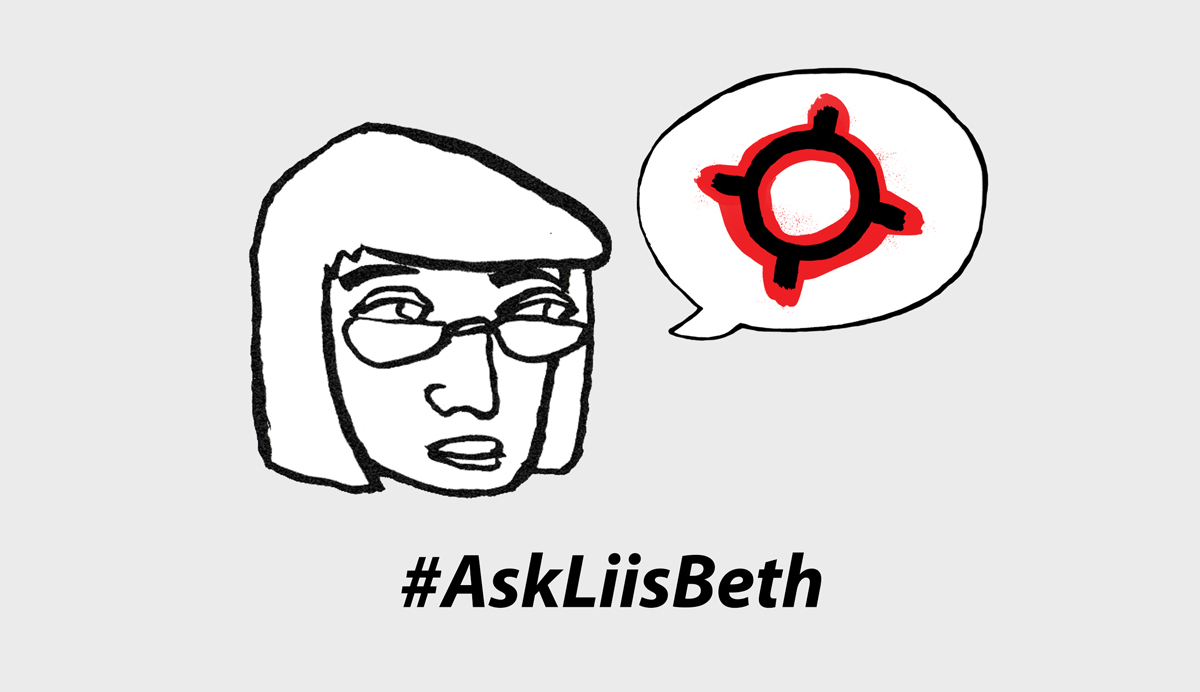Too often we talk about entrepreneurship as if it were one community, one culture. In reality, it is a kaleidoscope of philosophies, approaches, and cultures. But the bro-oriented, Silicon Valley tech culture sucks up all the media oxygen and, with it, too much of the venture capital. And the celebration of that narrow aspect of entrepreneurship is getting stale.
Take Montreal’s Startupfest, now in its sixth year. An estimated 3,500 entrepreneurs, venture capitalists, accelerators, incubators, policy-makers, consultants, and bankers (mostly from Canada and the U.S.) paid between $300 and $800 per person to attend what were often puerile, shoddily prepared presentations interrupting what seemed to be the main event: big money boys trying to out dude each other on stage and at festival parties.
The event is a marquis summer event for Montreal, a city trying to position itself on the global innovation map as a world-class startup haven. It currently ranks 20th behind Toronto at 17th.
This year, the festival featured 70 speakers and three separate circus tent stages set up in the Old Port of Montreal. Many came to compete in pitching competitions awarding anywhere from $10,000 to $200,000 in seed funding. Apparently, they also came for loads of free drinks (sponsored by Osler and Shopify), and the chance to play with “grown-up” toys such as foosball and snag pink beach balls and free pairs of Parasuco jeans, giveaways by various sponsor booths. The event billed itself as “unforgettable and unconventional.”
Beware: What Sells as Unconventional Is Actually Deeply Conventional
I attended the fest, on the lookout for the unconventional. Other than a pitch judging panel called The Grandmothers (retired women entrepreneurs) and pop-up child care, most of the event was the same old celebration of tech/VC-centred bro-preneurship.
For those who have never been, these conferences work hard to craft a cool, anti-establishment experience. But look beyond the nifty swag, red sneakers, and neon lights, and what you really see is raw, 300-year-old capitalism at work. Large venture capital firms and accelerators, hip as they try to be to scoop up young talent, are really just organizations with age-old biases and management processes, freighted with old-boy politics and rules. Startups that win their backing quickly become traditional corporations. Winning big VC backing requires fitting in and doing things their way. So much for following your own authentic path that fired you up in the first place. So much for rebelling against big money and “the man.”
The speaker lineup was touted as first class, but session topics were narrow in scope and short on depth as well as respect for the audience. There were no sessions on social entrepreneurship nor on the now estimated $3 trillion impact investing space, a scale that surely deserves some attention at an event like this. Several headline speakers tried to come across as unconventional and unscripted but were simply unprepared. A few rogue panelists seemed more interested in using air time to fortify their personal brands rather than sharing useful information. No one interrogated the space itself or asked the audience to reflect hard on important questions such as how many jobs their ventures are creating, where those jobs are located and for whom. Or even how to address growing structural unemployment some new ventures accelerate with next-stage robots and artificial intelligence. But a presenter just showing up and being mildly entertaining was celebrated. The casualty? Audience learning and value for money. Though, sadly, too few bros in the audience seemed to care.
Fuck That: No, I Really Mean, Fuck That
Tech culture tries to pass itself off as unconventional, rebellious, and youthful by celebrating a culture of cussing, but that quickly became old as presenters over 40 seemed in full-out competition to drop as many f-bombs as possible. It must have felt dangerous for them, a little like swearing in front of their mothers for the first time. I can say “fuck” deliciously and often, but when it comes to using the f-word on stage, I take my lead from uber-orators like Tony Robbins who swears, but strategically and not at the expense of substance. Full of dude-itude, these guys dropped bombs as if on auto-repeat rather than using their words to say anything informative.
What’s lost when organizers cuss on stage themselves? Or when a Master of Ceremonies counsels audience members to count the times they hear the word “fuck” and suggests awarding prizes to the speaker who drops the most bombs? Let’s just say it was a distraction from the obvious—that those who used it most had the least to say.
A Chance to Meet “The Man”: But He Doesn’t Care About You
Too typical of the event were speakers like Dave McClure. Now McClure has an enviable reputation as a celebrity angel investor. According to his website, his venture fund (co-founded by Christine Tsai, who is never mentioned) has made investments in 1,500 companies in 50 countries. Not surprisingly, the tent he spoke in was packed with eager conference goers of all genders and ages hopeful to bag some of that venture capital. I hoped he might have something meaty to say. I turned on my recorder just in case.
As he settled into his speaker’s chair, the first thing he told the audience, with a strange pride as if anticipating we would be impressed, was that he didn’t have time to prepare his 30-minute talk. He had planned to write one the night before but he got drunk at the festival party instead. (Everyone laughed knowingly.) So the paying audience would have to make do with festival staffer interviewing him on stage.
A competitive type, he began his talk by reciting comedian George Carlin’s “seven words you can’t say on television“, (circa 1972) and added that he didn’t understand why the last word, tits, was a problem. “Afterall, even girls like tits”. The crowd laughed and followed with a rousing “ya man” applause.
When asked about diversity, he noted that African Americans and Hispanics add up to 30 per cent of the population and were definitely an under-indexed population (people, anyone?). He said he started his 500 Startups diversity program “not because we’re wonderful or good Samaritans but because (and his voice lifted excitedly) we can make a lot of fucking money!” After a few in the audience hooted, he elaborated, “We’re just greedy blood-sucking venture capitalists who just want to make a lot of fucking money…arbitraging racism and sexism for our own selfish fucking benefit and the globe.”
If you can stomach a minute and 20 seconds of his rant, you can listen to it here.
Apparently, being offensive was part of his celebrity shtick for a reality TV show he had been cast in. (It was cancelled before starting.) I questioned whether I was a humourless bitch or had landed in an Animal House full of frat boys. Guess I can ponder the question further as 500 Startups is opening up shop in my home city of Toronto and nearby Waterloo. Can’t wait.
His talk lasted only 20 minutes, thank God. Still, the audience clapped and several even whistled appreciatively. Later, I asked more than 15 entrepreneurs—of both sexes and a variety of ethnic and racial backgrounds—what they thought of his talk. The majority were nonplussed by his shock-jock style. They considered it part of a salable celebrity personality. To them, he was still a hero and model. “After all,” enthused one 20-something South Asian entrepreneur, “he gives a lot of money to entrepreneurs.”
Only one person expressed what I was thinking, that his talk was disgusting and disappointing and you can listen to that response here.
WTF? But the Networking Was Fun
Montreal Startupfest does many things well, especially facilitating networking. There were lots of long breaks, free Nespresso, the bar was open all day, tech demo tents and mentor tents hummed with people, and they rocked social media. Others could learn from them on this. But they blew their opportunity to stand out from other conferences like this by not broadening the scope of topics and by not professionalizing their management of panels and speakers. Positive change might start by choosing speakers who represent where the event wants to go, not where it has been. Efforts to be gender inclusive by ensuring gender balance on stage was actually laudable. You could tell organizers were really trying. But still, the overwhelming majority of attendees were male (by my eyeball count it was more than 80 per cent). Many experts understand that real inclusivity has to address culture as well as rosters, and that means changing the adolescent, bro culture that so dominates the tech/venture capital entrepreneur space, which not only diminishes inclusivity but inhibits real learning and dampens the festival’s potential for growth and meaningful impact.
Thankfully, times are changing. And events like this will have to evolve to stay relevant—or others will replace them. As for me, I love a good time as much as any bro-preneur. On that basis, I would totally go again but next time, I won’t bother with a notebook. I’ll just pack my party shoes—and Tylenol.
Follow up readings:
Another good article about the impact of bro talk:
http://www.nytimes.com/2016/07/10/opinion/sunday/how-wall-street-bro-talk-keeps-women-down.html?_r=0
The Best Presentation?
By Ooshma Garg, founder of Gobble, prepared and amazing, instructive story.
Other perspectives and articles about Montreal Startupfest:
http://montrealgazette.com/business/local-business/montreals-startupfest-is-all-grown-up
http://www.cbc.ca/news/canada/montreal/nathon-kong-wins-cbc-media-pitch-at-the-international-startup-festival-1.3158246
http://montreal.ctvnews.ca/startupfest-connects-entrepreneurs-with-investors-1.2987132
https://ludovicdumas.com/2011/07/19/montreal-international-startup-festival-2011-bubble-talk/
About the founder, Phil Telio:
https://www.linkedin.com/in/telio












